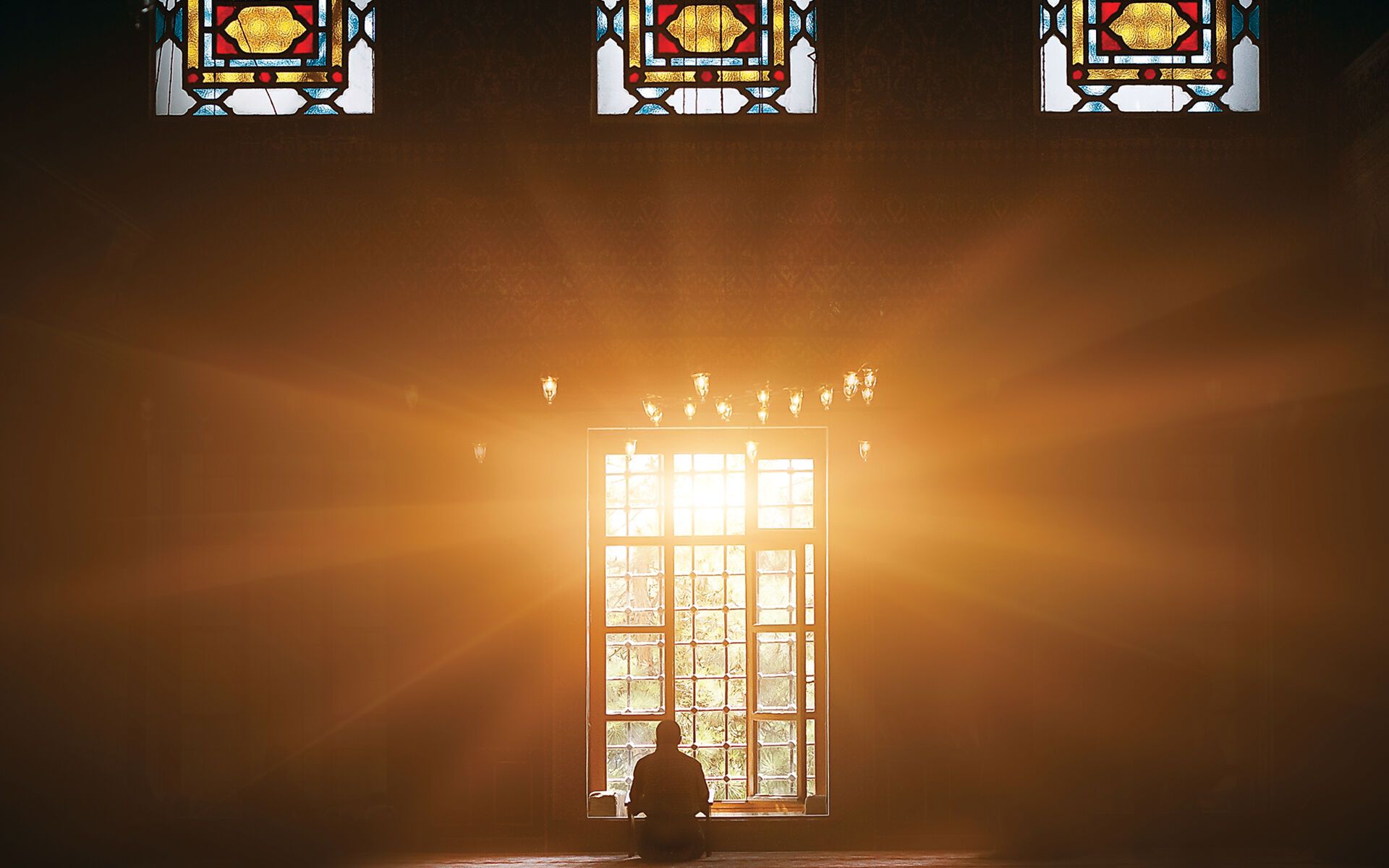Suffering – 1 (Chela)

In This Article
-
In the Muslim, Christian and Jewish worlds, and in different schools of thought in Islam, there have always been retreat and seclusion for the purpose of spiritual refinement and training.
-
It is essential to be very welcoming toward afflictions, and to welcome with the same contentment whatever comes from God—good or bad, happiness or suffering.
Denoting abandonment of all (worldly) pleasures and delights, and the affliction and hardship one bears when overcoming corporeality, chila (suffering) is used to express an initiate’s spending at least forty days in strict austerity and self-discipline in the name of spiritual training. During this period, initiates keep to the absolute bare minimum in meeting such bodily needs as eating, drinking, sleeping and speaking, and spend most of their time in worshipping, mentioning God, thinking and self-supervision. As if they had died before dying, they concentrate on death and are annihilated with respect to their carnal soul and prepares for a new, spiritual life with the necessary endowment to be persons devoted to God.
Dervishes spend the period of suffering either in a silent corner of a dervish lodge or in a quiet room in their homes. Associated with austerity and even serving to fulfill some of its functions, suffering is an attempt to gain nearness to God or an active expectation of meeting with Him in the spirit. The original word used, chila in Persian and arba‘in in Arabic, means forty, because such a period lasts at least for forty days, although it may last for many more days or even months or years. It may even occur that the dervish feels obliged to suffer the whole life long in order to surmount the animal aspect of his or her nature. Regarding all hardships that they suffer on God’s way as His precious gifts, they like life more as its griefs and hardships increase, and they welcome afflictions in the delight of living a conscious, deeply felt life. Some people of the heart consider such sufferings and afflictions as Divine favors presented in those forms, and desire more. Fuduli expresses his thoughts in this respect in the voice of Majnun as follows:
Never reduce Your grace on people of affliction;
that is, make me addicted to more and more misfortunes.
Jalalu’d-Din Rumi likens suffering and afflictions to a guest knocking on our door every morning and stresses that the dear guest should be welcomed and entertained:
Every moment a grief comes upon your heart like a dear guest.
When an emissary of grief visits you, welcome it as a friend.
In fact, it is not a stranger to you, for
you and it are acquainted.
Ibrahim Haqqi voices the same thoughts, dressing them in the style of his age:
If grief and melancholy come upon your heart,
suffer it and know that it is acquainted with you.
If anything occurs to you from the Ultimate Truth,
accept it with warm welcome.
Sorrow is a guest, entertain it, so that
God may find you welcoming every misfortune.
….
Hold not back from affliction so as not to become unmanly;
Many people relying on God are happy with affliction.
For Esrefoglu Rumi [1], even poison is like honey or sugar:
Esrefoglu Rumi, this is what behooves
those who love the Beloved,
They should swallow poison
as if it were sugar for the sake of the Friend.
In this way, it is essential to be very welcoming toward afflictions, and to welcome with the same contentment whatever comes from God—good or bad, happiness or suffering. Moreover, there are some other principles which dervishes should observe during certain periods of suffering that they spend in retreat.
Suffering, which usually lasts for forty or a few forty days, is the most direct way for travelers to God who are in pursuit of lofty ideals to purify their minds and hearts and to deepen in thought and feelings in consideration of the world beyond, and to rise to the level of life in the horizon of the heart and spirit where they will share the same aura with spiritual beings. Suffering exists in all the heavenly or unheavenly religions and religion-like spiritual systems; it is necessary in order to discover the innate power of the spirit. But here we will not discuss that aspect of it, which rather concerns mystical movements and parapsychology.
Muslim Sufis base their consideration of suffering on the forty days which Prophet Moses spent on Mount Sinai before being addressed by God (see, the Qur’an, 2:51; 7:142). They also refer to the forty years the Children of Israel had to spend in the desert of Sinai as a punishment for their refraining from fighting and as a preparation for their future life. In Christianity, there is the time of Lent (a period of forty days before Easter), which shows that suffering is common to almost all religions and religion-like systems. Furthermore, even if it only lasts at most for ten days, retreat into a mosque without going out during the last ten days of Ramadan for the purpose of more devotion can also be considered as having some relation with suffering.
In the Muslim, Christian and Jewish worlds, and in different schools of thought in Islam, there have always been retreat and seclusion for the purpose of spiritual refinement and training. While such refinement and training have been performed in special rooms of retreat and seclusion, called houses of suffering, followers of other religions have performed the same in the seclusion of their places of worship.
Dervishes are taken into a retreat or a house of suffering by their spiritual guide. There they live alone, eating, sleeping, and speaking little, and spending most of their time in worship. They hold themselves under strict control and self-supervision, continuously breathing life into the heart, and traveling in the mind between their inner world and the outer world. Wholly dedicated to attaining a purely spiritual life, they try to feel the Lord with all their being and to see beyond the door half-opened on the heart. Endeavoring to discern and attain unity, they fear missing any signs of the Divine manifestations that may dawn on the hills of the heart. They express the limits of their capacity and the insufficiency of their willpower with sighs of poverty and helplessness, and become more hopeful with their reliance on the limitless Power of the Ultimate Truth. When left with no means at all, they expect to be surprised by the opening of a door, and unburden themselves to their Lord, Who sees everything, in the manner of a poor beggar, saying like Muhammed Lutfi Efendi:
Be kind to me, O my Sovereign,
do not abandon favoring the needy and destitute!
Does it befit the All-Kind and Munificent to stop favoring His slaves?
As long as they grow in knowledge and love of God, they deepen in relationship with the Lord, and devote themselves wholly to feeling and thinking of the Divine. Keeping the satisfaction of their essential needs to the barest minimum, and overcoming their corporeality, they become confidants of heavenly beings in their states, attributes and being, and begin to breathe the breezes of friendship with the Sovereign. (to be continued in the next issue)
Note
- Esrefoglu Abdullah Rumi (d. 1484) was a Sufi scholar and poet who lived in Iznik in the North-Western Turkey. He was taught by Haji Bayram Veli in Ankara and Husayn Hamawi in Hama, Syria. His Muzakki’n-Nufus (“The Book Which Purifies Souls”) is very famous. (Tr.)









